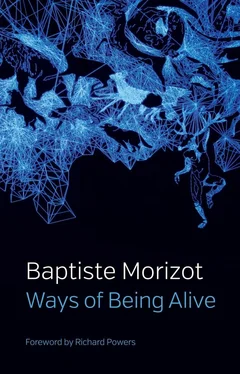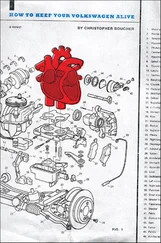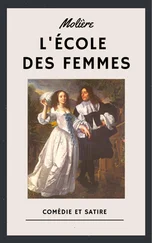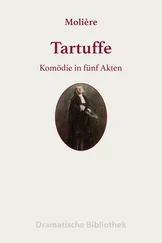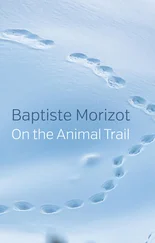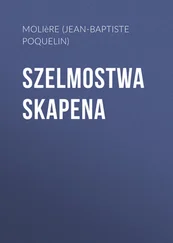Polity Press
65 Bridge Street
Cambridge CB2 1UR, UK
Polity Press
101 Station Landing
Suite 300
Medford, MA 02155, USA
All rights reserved. Except for the quotation of short passages for the purpose of criticism and review, no part of this publication may be reproduced, stored in a retrieval system or transmitted, in any form or by any means, electronic, mechanical, photocopying, recording or otherwise, without the prior permission of the publisher.
ISBN-13: 978-1-5095-4722-7
A catalogue record for this book is available from the British Library.
Library of Congress Cataloging-in-Publication Data
Names: Morizot, Baptiste, author. | Brown, Andrew (Literary translator) translator.
Title: Ways of being alive / Baptiste Morizot ; translated by Andrew Brown.
Other titles: Manières d’être vivant. English
Description: Medford, MA : Polity Press, 2021. | “Originally published in French as Manières d’être vivant. Afterword by Alain Damasio. Actes Sud, France, 2020.” | Includes bibliographical references. | Summary: “A powerful plea for a new understanding of our relationships with other animals and of ourselves”-- Provided by publisher.
Identifiers: LCCN 2021015849 (print) | LCCN 2021015850 (ebook) | ISBN 9781509547203 (hardback) | ISBN 9781509547210 (paperback) | ISBN 9781509547227 (epub)
Subjects: LCSH: Environmental ethics. | Human ecology. | Human-animal relationships--Moral and ethical aspects. | Philosophical anthropology. | Life. | Human beings.
Classification: LCC GE42 .M6913 2021 (print) | LCC GE42 (ebook) | DDC 179/.1--dc23
LC record available at https://lccn.loc.gov/2021015849LC ebook record available at https://lccn.loc.gov/2021015850
The publisher has used its best endeavours to ensure that the URLs for external websites referred to in this book are correct and active at the time of going to press. However, the publisher has no responsibility for the websites and can make no guarantee that a site will remain live or that the content is or will remain appropriate.
Every effort has been made to trace all copyright holders, but if any have been overlooked the publisher will be pleased to include any necessary credits in any subsequent reprint or edition.
For further information on Polity, visit our website:
politybooks.com
Those who think the most deeply
love what is most alive.
Friedrich Hölderlin,
‘Socrates and Alcibiades’ (1799)
Something has gone terribly wrong with the way we live on Earth. In small steps, over the course of centuries, we have turned the teeming planet into a mausoleum. We didn’t mean to. We were looking for safety, understanding, certainty, a way to simplify and control, a way to manage the chances and hazards of existence. But along the way, we somehow came to believe that we alone, of all the millions of flavours of being in this ever-unfolding experiment of life, are the only ones able to speak, to think, to speculate, to want, and to feel.
We have walled ourselves off and made ourselves exceptional. We’ve alienated ourselves from the rest of creation, and in doing so we have stripped ourselves of truth and meaning. Far from finding understanding, we have blinded ourselves to our larger purpose. Way short of making ourselves safe, we have put our very existence in peril. We live as if the planet is our wholly-owned subsidiary, when in fact things are exactly the other way around.
Baptiste Morizot has diagnosed this disease with poetic precision:
by dint of no longer paying attention to the living world, to other species, to environments, to the ecological dynamics that weave everyone together, we are creating from scratch a mute and absurd cosmos . . .
In extinguishing our own capacity for awe and attention, our own powers to engage in the widest theatres of being, we are also launching a new mass extinction.
Morizot has an answer to this culture of annihilation: we must turn our alienation back into a spirit of alien kinship. For a long time, we’ve devoted ourselves to dispensing with the need for presence. Western modernity has been predicated on ‘four centuries of devices that relieve us from having to pay attention to alterities’. But what if those alterities were themselves the key to our existence and the cure for our self-inflicted slide into absurdity? What if the noisy parliament of living things was not something to simplify, monetize, and eliminate, but rather was the source of work and purpose sufficient to keep us forever decoding it? ‘After all,’ Morizot writes, ‘there are meanings everywhere in the living world: they do not need to be projected, but to be found . . .’.
Many brilliant minds are right now engaged in the adventure of building a new-old culture, a culture of interdependence, reciprocity, and interbeing. Morizot is among the most lyrical of these pioneers. His philosophy is bracing, and his proposed solution to human exceptionalism is fiercely articulate. But this book goes well beyond philosophy. It is one of the most developed explorations I’ve seen of just what a ‘landing back on Planet Earth’ (to use Bruno Latour’s formulation) would look like. It’s a detailed dive into the complex, intractable challenges of returning to the community of living things. More than that, it’s a systematic account of the constant negotiation such work will involve. But it is also a deeply poetic love song for the ecstasy such hard and endless diplomacy brings. We must, as Robin Wall Kimmerer observes, learn how to become indigenous again. Morizot describes in beautiful detail just what that might look like and just how we might rejoin the work of composing the world in common with other creatures.
The view from the heights of this book is vertiginous and exhilarating. Morizot explores life at all gauges, from the cell to the entire biosphere. He peers through the longest lens of time, backwards across billions of years and forwards into an endlessly unfolding future. His words reawaken consciousness to all its possibilities. For Morizot, ‘the best analogy for understanding the evolutionary nature of the biosphere is that of a poetic fire: a creative fire ’. This book is itself an instance of life’s poetry. It spreads the fire of creation. It is at once an adventure story, a personal odyssey, the deepest kind of philosophical meditation, a naturalist’s field guide to tracks and scat and chatter, an epic poem, a search for collective purpose, and a how-to manual for the restoration of the mind and soul.
Read these words and be shaken. Let them chill and quicken you, like a night of sleeping out under the stars on a mountainside on a cold winter’s night filled with wild calls. Morizot’s story will return you to the sharp, painful, complex, ineffable thrill of being alive on Planet Earth. In the howls of his beloved wolves, he hears the world talking in several million different and unfolding tongues, saying:
‘I’m here, come, don’t come, find me, run away, answer me, I’m your brother, your female lover, a stranger, I am death, I’m afraid, I’m lost, where are you? Which direction should I run in, towards which ridge, on what summit? . . . There’s a party to be had, we’re about to set off, the ceremony is well under way and I’m a fragment. Anyone there? I look forward. Joy! O joy!’
Richard Powers, January 2022
Introduction The ecological crisis as a crisis of sensibility
The world depends on so many different species, each a nutty experiment.
Richard Powers, The Overstory
We’re on the Col de la Bataille, it’s the end of summer, it’s cold, the strong northerly winds are crashing into the southerly winds. It’s a desolate pass, still in the Palaeolithic era, crossed by a small asphalt road that’s often closed. But it’s not a desert: it’s a hub of winged life. Indeed, this is where many birds, countless species of them, pass through on their long migratory journey to Africa. It’s a mythical doorway opening up to the other side of the world. We’re here to count the birds. Equipped with a handheld counter, the sort used to count the people entering nightclubs and theatres, we click away frantically in a kind of joyful trance for every swallow that passes; and there are thousands of them, and tens of thousands. My companion counts 3,547 in three hours: barn swallows, house martins, crag martins. They arrive from the north, in clusters, in swarms, and hunker down in the beech forest under the pass, waiting for signs that we cannot interpret. They assess the wind, the weather, how many of them there are, all sorts of other things, and they replenish their tiny reserves of fat during their halt; at one precise moment, for reasons that elude us, an entire swoop of swallows plunges into a breach in time, so they can get across the pass at just the right moment. The sky is dotted with birds. Once they’ve passed the wall of wind that picks them up from the south, they’re on the other side, they’ve made it, they’ve got through one door; there will be others. Lower down, glued to the ground, the creeping migration of sparrows takes place: they flit from tree to tree, imperceptibly, as if they were walking, but as they go from tree to tree they’re going to the end of the world. Some blue tits need to pass under the wave of wind; they cross the road over the pass on foot, it takes them a minute of stubborn effort to travel the asphalt, without doubting their ability but without hurrying either, on a journey that will take them to North Africa. How can a whole continent of courage be contained in eleven grams of life? The birds of prey are there too, the osprey, the secret king of the rivers, who has inventively transformed his talons into powerful paws like those of a fishing bear, and is now transformed into the pure embodiment of action: a pair of wings plunging down from the sky, grafted onto a pair of inexhaustible hands. Kestrels and hobbies pass through the swarm, predators in the company of prey, just as lions travel with gazelles. This is just one threshold in the long procession from one end of the terrestrial globe to the other: the migration of all that’s left of the dinosaurs, still full of life even though some people naively think they’re extinct when they’ve simply transformed into sparrows. The procession includes pipits, wagtails, hedge sparrows, giant vultures and microscopic canaries, wrens, various finches, wallcreepers and royal kites, like Gallic tribes flaunting their colours, each with its customs, its language, its pride without ego and without mirror – each with its own demands. And each of these life forms has its own unique perspective on this shared world, and has mastered the art of reading signs that nobody else can understand.
Читать дальше
